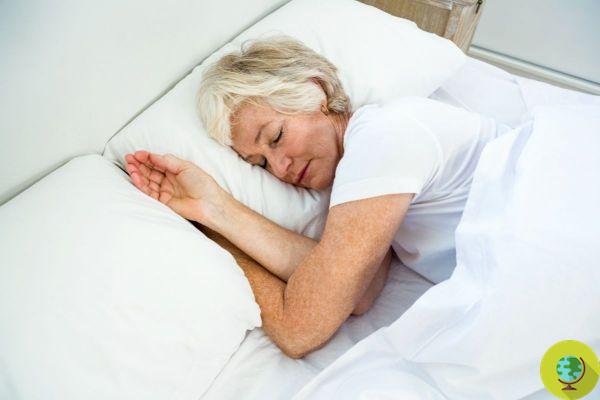
According to a recent study, sleeping well would extend life. But why does this happen and how can we improve our sleep?
Don't store avocado like this: it's dangerousAccording to a recent study, sleeping well and regularly would extend life. But why does this happen and how can we improve our sleep quality?
How to live longer and why are some people living longer than others? These are questions that have afflicted man since the dawn of time. In fact, human beings have always been looking for strategies, potions, miraculous foods and bizarre habits to extend their stay on Earth. Now a new study links a particular, healthy habit to a longer life span: having a regular sleep cycle.
The researchers looked at the sleep cycles of older people and compared them to those of adults and children. They then did a series of blood tests to look at blood cholesterol levels and tests - such as polysomnography, a test used in diagnosing sleep disorders. Finally, the test participants were asked to make judgments about the quality of their sleep.
It was found that those who have maintained rigid sleep-wake patterns over time also have higher levels of good cholesterol in the blood and low levels of triglycerides - values linked to a reduced risk of heart attack and heart disease. Therefore, sleeping regularly - always going to sleep at the same time, having a fixed alarm, getting a good quality sleep - helps to remove the risk of heart attack, one of the main causes of death in the world: by acting on the metabolism and on the absorption of lipids, sleep really helps you live longer.
(Read also: Stages of sleep, what are they and how many hours of deep sleep does your body need to regenerate?)
But how much sleep should you have to live well? Experts advise adults to sleep between six and nine hours a night. By setting the alarm at the time we want to wake up, just calculate the hours of rest needed to be able to establish a correct evening routine and go to sleep at the right time. In addition, it is important not to doze off during the day: even if, after a sleepless night, it is tempting to take a nap to recover some of the lost sleep, this action could ruin the regularity of our sleep cycle.
In addition, to sleep well, it is a good idea to establish healthy habits before going to bed that will help us relax, release tension and have a better sleep. For example, we could prepare a hot bath, useful for our body to reach the ideal temperature for rest. Or we could take a few minutes to organize the next day, perhaps writing a to-do list so that the thought of future commitments does not plague us while we are in bed. Finally, we could relax by doing stretching or yoga exercises, which can help release the muscle tension accumulated during the day (doing intense physical activity, on the contrary, will activate our body and prevent us from falling asleep).
It is also important to move smartphones and computers away from our bedroom: the ideal would be to turn off the phone half an hour before falling asleep, so that our brain has time to 'detoxify' from the numerous stimuli that come from apps and social networks.
Follow us on Telegram | Instagram | Facebook | TikTok | Youtube
Fonte: Frontiers in Aging Neuroscience
We also recommend:
- If you wake up tired in the morning, you may have had little REM sleep. Tips and tricks to increase it and feel rejuvenated
- Sleep green, sleep better! Tips for a "zero emissions" sleep (Opens in a new browser tab)
- Sharing your bedroom with your dog improves sleep quality (Opens in a new browser tab)
- The secret of longevity discovered in a small worm: will we live to 500 years?


























